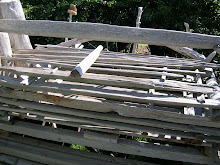 Perspective Exercise #2: Social Time Out
Perspective Exercise #2: Social Time OutSome times we play in social settings and we need to take a break. We play less than our best or less than how we like to play. We engage from a perspective of discomfort. To quit at these times may mean to give our self a break. Take time out. Even when we feel like we’re fully engaged, we can use a break. We can savor what we enjoy. Go and spend a moment in the rest room, in the bathroom, in the toilet stall. It serves as a guaranteed safe space in a social setting. We can check in, and see if we continue playing, how we will play. We have the chance to just breathe and notice what goes on inside our body. Pieces constructed from the past and from an imagined future. When we return, we consider embracing just the present. From this refreshed position, we can reengage.
Perspective Exercise #3: Personal Time Out
Some times too many demands pull on a moment and priorities become confused. Next time take or give time for a simple time out. Start practicing at home when no one else observes. Just sit still and let all the lists and the demands sit still, too. “I quit,” can mean I have something else I have to do now. Take an aware breath. See if we can playfully approach the list in a new way when we reengage.
A list of comfort scenarios can become large and personal. Take time to do research on comfort. Some times our bed serves as a safe ship to play on. Taking naps seems a playful way to insert a safe place. The nap alludes to the essence of comfort; discover what makes the break effective. We may need a little jump to reengage. Jumps can be playful. Find a jumping memory. Find a time when to jump meant full joy. The next time we come back to reengage in an activity after taking a desired break, jump using this memory as the frame.
Along with naps, soaks and baths create comfort, or repeating any aspect of a morning ritual. Since they represent part of our daily engagement rituals, reexamine them. Be aware that to disengage we can use any of our nighttime rituals as well. Turn inward for an answer to the question, “Now what?” Now we can make time for what we would like to have at the top of the list. The list, not structured by outcome, but by playful inquiry holds to our intent. We didn’t plan to hold our breath forever; we consider, continuing to play with a new awareness.
 For many of us the sense of renewal from taking a break can be evoked with a childhood memory of play. Find a time we got hurt and ran to a parent for comfort. As soon as we had our parent's attention and the chance to cry out our tears of relief and feel the comfort of our parent, we felt a return of playfulness with a readiness to jump back in. Do remember. We would repeat this cycle, when really young, as often as needed. Don’t forget. Young humans do this naturally.
For many of us the sense of renewal from taking a break can be evoked with a childhood memory of play. Find a time we got hurt and ran to a parent for comfort. As soon as we had our parent's attention and the chance to cry out our tears of relief and feel the comfort of our parent, we felt a return of playfulness with a readiness to jump back in. Do remember. We would repeat this cycle, when really young, as often as needed. Don’t forget. Young humans do this naturally.

2 comments:
Your Perspective Exercise #2: ‘Social Time Out’ entry reminds me of the only children’s book Ray Bradbury wrote called Turn On the Night. It is about perspective taking. A child is afraid of the dark and refuses to go outside at night in the summer to play with friends. S/he turns on all the lights in the house to seek comfort and familiarity, afraid of what may be hiding in the unknown of the darkness.
When the social time and space becomes overwhelming we as humans tend to become absorbed by it and react to the movement of it in sight and sound without a pathway to get away gracefully. I often advise my students to learn that it is okay to take a time out. Parents take a time out from the busyness of their children, not a punishment but a luxury. They can help their children understand that a timeout can provide a place of refuge, a place of grace within chaos.
Back to Bradbury’s book…. The child is visited by a purveyor or advice who helps reframe the light and dark, the day and night. S/he learns how to observe the transition between day and night. As the light begins to grow dim, to turn off the lights in the house so the waning daylight begins to fill up the rooms of the house. Soon, to follow the waning night the child is drawn to venture outside and what was once the darkness of the night is less dark and the more it becomes a place to enjoy with friends.
Perspective Exercise #3: Personal Time Out
I find that when I take a personal time out it often feels as if I am being lazy, procrastinating, setting aside for later what I ‘need’ to be doing today, right now. The privilege to enjoy the ‘grace of time’ is what I try to keep in mind. It becomes a peaceful space in time where I have the right to carve out time that totally belongs to me without accountability to anyone else.
During these times of procrastination, time outs I have learned to set aside any expectations for productivity, it is my time, and mine alone. I go for walks, I take naps, I listen to music, or go out to the garden to pull weeds or trim plants. When I return to whatever task it was that I seemed to be procrastinating from, my direction is more clearly and I am more able to express myself in writing or whatever the task before me was. Yes, the ‘grace of time’ is one of my gifts to myself that provides peace of mind and renewal of spirit.
I like the writing exercises that Julia Cameron advises in her books, the morning…
Where is it that we learn to be ‘busy’ all the time; and when we are not, we are ‘wasting time’. Whose time is it anyway? Play is not the opposite of work, but rather the release of formalized structure that we learn to impose on all hours of our lives. Schedules and guilt must be kindred spirits, strange but compatible bedfellows. They seem to be dichotomous, one providing structure and the other providing a hindrance to accomplishing the regime of the schedule. Schedules are the domain of left-brained people with tightly controlled minds and bodies. A right-brained is the kind of individual who keeps one eye on the clock and the other on the next task; and who can attend to oral and written directions. The left-brained individual is generally known as lazy, distracted, and daydreamer. They often think ‘in pictures’, the written word or oral direction is just so many letters swimming on the page or ‘blah, blah, blah’ creating background noise.
Now…trying to get the left-brained people to learn to play, this may be a focus for this work you are doing. The right-brained people seem to be playing all the time, or at least not adhering to schedules or perhaps not having them in their mental radar.
i was nodding along with the story of the dark, remembering how wonderful to discover how darkness had so many layer that we see. it is such a treat walk in the 'dark.'
and oh how i listen to the voice encouraging me to give up my rest and do something for credit. it is such a luxury to calm those voices with reassurance that this doing 'nothing' is essential to understanding where i really am, welcoming these thoughts to swirl around, welcoming a playful digging in the late afternoon.
Post a Comment